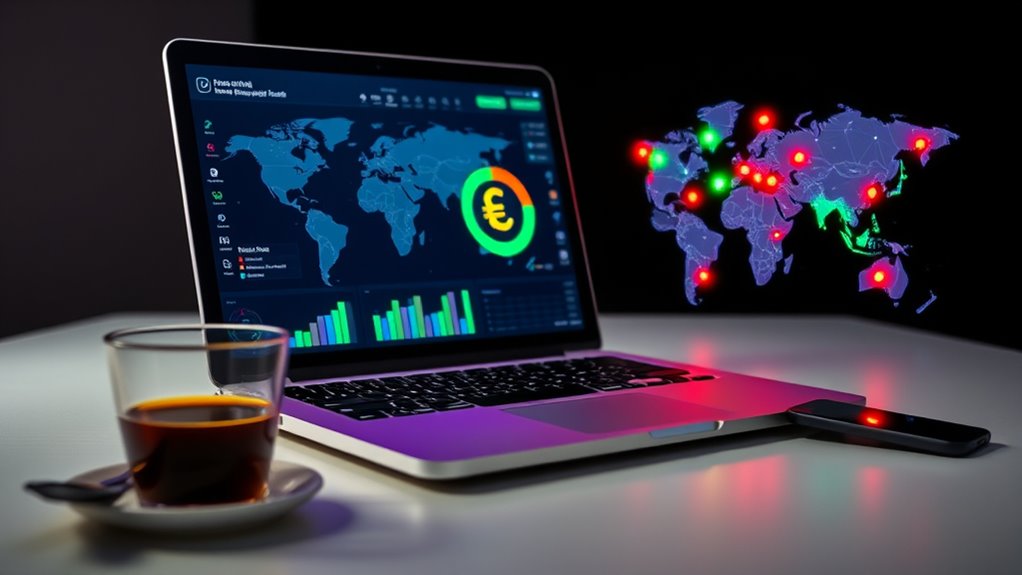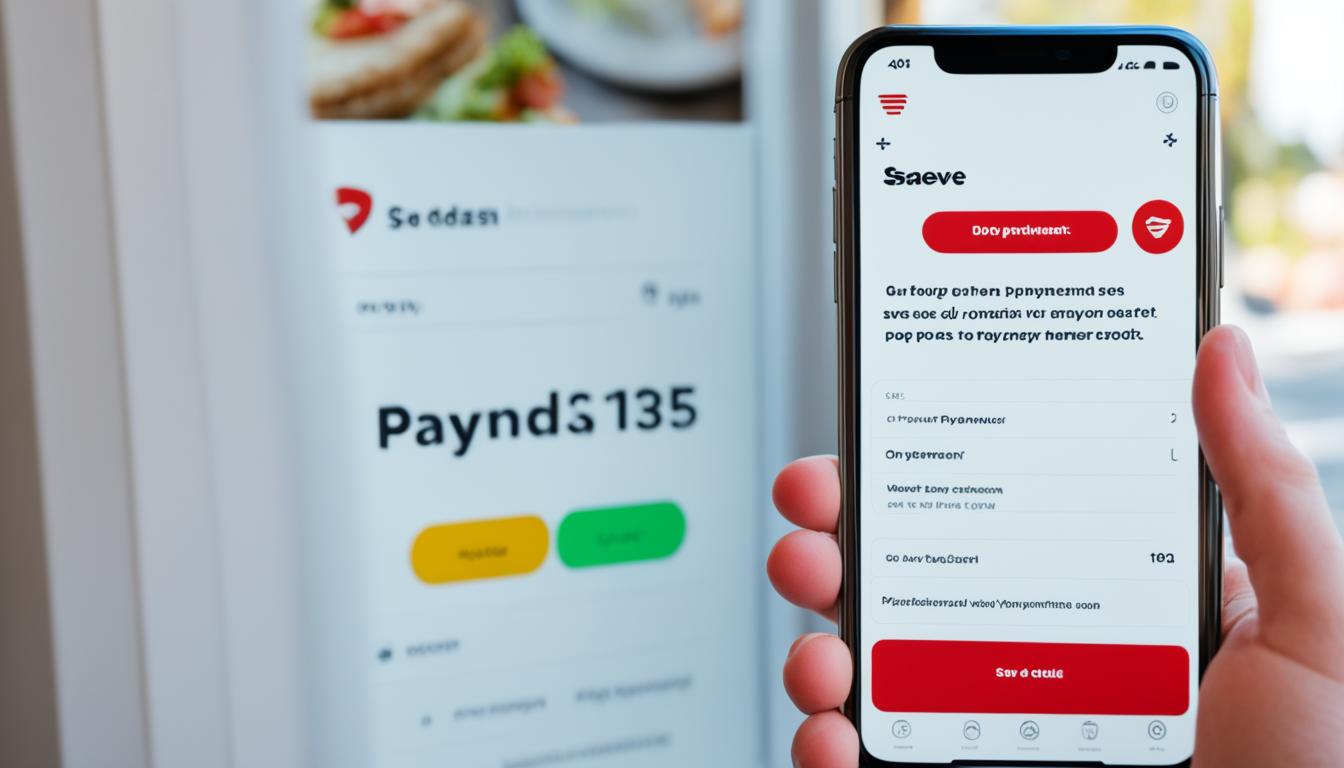To accept international payments and currencies online, you need a trusted payment gateway that supports multiple currencies and automatic currency conversion. This enables your customers worldwide to pay in their local currencies, boosting sales and trust. Make sure the gateway has strong fraud prevention features like AVS, CVV checks, and 3D Secure to protect your business. If you want to discover more tips on expanding internationally securely, keep exploring how to optimize your global payment process.
Key Takeaways
- Integrate reliable payment gateways that support multi-currency transactions and automatic currency conversion.
- Clearly display prices in local currencies to ensure transparency and build customer trust.
- Implement advanced fraud detection tools, including AVS, CVV checks, and 3D Secure, to secure international payments.
- Monitor transactions for signs of fraud, such as unusual order volumes or inconsistent billing information.
- Offer multiple payment options and local currency choices to enhance user experience and expand global reach.

Accepting international payments can considerably expand your business’s reach and boost sales. When you open your doors to customers worldwide, you need to handle multiple currencies smoothly. Currency conversion becomes a key aspect of this process. Instead of losing sales due to inconvenient payment options, you can integrate payment gateways that automatically convert currencies at competitive rates. This ensures your customers pay in their local currency, making transactions straightforward and comfortable for them. Providing a seamless experience helps build trust and encourages repeat business. However, it’s essential to choose solutions that offer real-time currency conversion, so your prices remain accurate and transparent, avoiding surprises at checkout. By doing so, you eliminate one of the common barriers to international sales and make your products more accessible worldwide.
Along with currency conversion, fraud prevention should be a top priority. International transactions carry a higher risk of fraud due to different security standards and potential scams. To protect your business and your customers, you need robust fraud prevention measures. This involves implementing advanced fraud detection tools that analyze transaction patterns, flag suspicious activity, and verify customer identities. Many payment processors offer built-in fraud prevention features, such as AVS (Address Verification System) and CVV checks, which help confirm that the cardholder is legitimate. You should also consider using 3D Secure authentication, adding an extra layer of security during checkout. These steps not only safeguard your revenue but also foster confidence among your international customers, knowing their payments are secure. Additionally, understanding how Kia Tuning modifications can optimize performance might influence your decision to expand your business offerings internationally.
Furthermore, educating yourself about common fraud tactics used in cross-border transactions can help you remain vigilant. Keeping an eye on unusual order volumes, inconsistent billing or shipping addresses, and rapid succession of transactions are good indicators of potential fraud. Combining technology with clear policies, like verifying high-value orders manually, can greatly reduce the risk of chargebacks and financial loss. When you adopt an all-encompassing approach to fraud prevention, you protect your business reputation and ensure that your international expansion remains sustainable.
Frequently Asked Questions
Which Countries Have the Highest Transaction Fees?
You’ll find that countries like India, Brazil, and South Africa have the highest transaction fees due to cross-border taxation and fluctuating currency exchange rates. These factors increase costs for international payments, making it more expensive for you to process transactions. To minimize fees, you should compare different payment providers, understand currency exchange rates, and account for cross-border taxation policies in each country to optimize your international sales strategy.
How Do Currency Fluctuations Impact International Payments?
You’ll notice that currency fluctuations impact international payments through exchange rate volatility, which can cause the amount you receive to vary unexpectedly. To manage this, you should consider using hedging strategies like forward contracts or options, helping protect your profits from sudden currency swings. By actively monitoring exchange rates and employing these strategies, you can mitigate risks and ensure more predictable revenue when accepting international payments.
What Are the Best Security Measures for International Transactions?
Are you doing enough to safeguard international transactions? You should implement robust security measures like fraud prevention tools and encryption protocols to protect sensitive data. These steps help detect suspicious activity early and keep customer information secure. Do you regularly update your security systems? Staying current with the latest fraud prevention techniques and encryption standards ensures your international payments stay safe from cyber threats, giving your customers peace of mind.
Can Small Businesses Easily Accept Multiple Currencies?
Yes, small businesses can easily accept multiple currencies by using payment gateways that support currency exchange. These gateways automatically convert payments into your local currency, making transactions seamless for both you and your customers. Just guarantee you choose a reliable payment gateway with integrated currency exchange features, and set up your account accordingly. This way, you can expand your reach globally without hassle or complicated currency management.
How Long Do International Payments Typically Take to Process?
When it comes to international payments, time is of the essence, and you might find yourself waiting longer than you’d like. Usually, processing times range from a few hours to several days, depending on the payment method and country. Payment delays happen, but staying patient and understanding these processing times helps. Keep in mind, some transactions, especially cross-border ones, can take up to a week to clear.
Conclusion
Now that you’ve unbarred the secrets to accepting international payments, you’re like a bridge connecting your business to the world’s vast marketplace. With the right tools and mindset, you can turn currency barriers into stepping stones, opening doors to endless opportunities. Embrace these strategies, and watch your global reach blossom like a vibrant garden in full bloom. The world is waiting—step confidently across the threshold and let your business thrive across borders.









